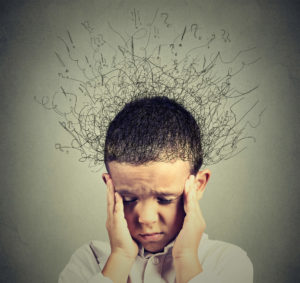Obsessive Compulsive Disorder (OCD) is a type of anxiety which is characterised by obsessions and compulsions.

What are Obsessions?
Obsessions are thoughts, ideas, or pictures that keep coming into your mind even though you do not want them to. They may be unpleasant, silly, embarrassing or distressing.
What are Compulsions?
Compulsions are things that you believe you have to do even though you may know they do not make sense. You might feel worried or angry or frustrated until you have finished what you have to do. Compulsions are the rituals we often do to make the obsessions go away for a while or to feel less uncomfortable – those obsessive thoughts torment us very much, and make us feel very uneasy.
What is OCD?
OCD is not a matter of choice, and resolving it is not a matter of willpower. However, it does require good intentions. OCD is thought to originate in the brain and affects your thoughts, feelings and behaviour.
Research has shown that there are two specific areas of the brain that are involved in OCD.
- A part of the brain that controls the ‘stop signal’ for repetitive behaviour,
- The other controls complex emotions such as worry about harming others, guilt and disgust.
So we don’t get bogged down in the complicated brain mechanisms, let’s liken OCD to a brain hiccup. When the stop signal fails, the circuit between these two brain areas hiccups which results in OCD symptoms. It’s as though the brain activates a fire alarm when there isn’t any smoke, and even when it knows better, it keeps the fire hoses spraying water.
What type of therapy can help?
There are forms of therapy that specifically target these brain hiccups by recruiting normal stop signals and quieting down the emotional response such as:
Cognitive Behavior Therapy (CBT) – CBT is the term used for a school of therapies that share the underlying assumption that people are disturbed not by events in their lives but by their beliefs about those events. It is a logical and practical approach to help people with their emotional problems by changing their thinking and their behaviour.
Want to know more? Contact Life & Mind Psychology on (02) 8559 0704. We have Clinical Psychologists trained in evidence based therapies to help you or your child to overcome such difficulties.
